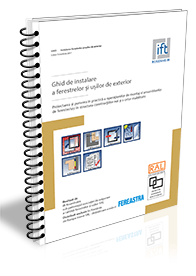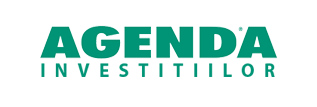| ANALYSIS: The structural problems of 2014 continue also during this year |
| English Section Publicat de Adrian Agachi 24 Mar 2015 08:00 |
 For the first part of the year, after the analysis of financial indicators for the previous 12 months, the managers of the major multinational groups announce that they have adopted cautious strategies given the difficult business environment and estimate that the structural economic problems of 2014 may continue to show their effects in the current fiscal year. Although in most cases the profitability was restored, any unexpected exogenous event (including the fluctuations of the exchange rate for certain significant currencies) could destabilize the overall situation, so that the thermal insulating joinery industry corporations have to secure their financial resources either by increasing their cash flow, or by adjusting the price of their products. Moreover, 2015 seems to be the right time for implementing a strategy involving a significant reorganization of its business portfolio, particularly through mergers, acquisitions and / or waiver of certain activities that have meanwhile become unprofitable. Also, the commitment to allocate substantial funds for research and development should no longer appear only "on paper". Given the context stated above, a thorough analysis of the European challenges is difficult to perform and, despite agreements on strictly punctual matters (with no immediate effect), the geopolitical tensions are still a real concern, especially for states that are in the Eastern part of the continent, threatened by the escalating crisis in Ukraine. Moreover, recent information - that interest the whole business environment - confirm that the economic sanctions, the weaker trade relations in the European Union and other countries, as well as other exogenous reasons, generated during the last year, a very small increase of the GDP. The only good news are given by the fact that the European economy has not been in technical recession. Basically, in the last three months of 2014, the GDP gained +0.3% in the Eurozone and +0.4% in the EU-28 over the previous quarter, after a previous sequential increase of +0.2% in the Eurozone and an increase of +0.3% in the EU-28, which means that the Union's economic space is not functioning at the expected parameters. For the first part of the year, after the analysis of financial indicators for the previous 12 months, the managers of the major multinational groups announce that they have adopted cautious strategies given the difficult business environment and estimate that the structural economic problems of 2014 may continue to show their effects in the current fiscal year. Although in most cases the profitability was restored, any unexpected exogenous event (including the fluctuations of the exchange rate for certain significant currencies) could destabilize the overall situation, so that the thermal insulating joinery industry corporations have to secure their financial resources either by increasing their cash flow, or by adjusting the price of their products. Moreover, 2015 seems to be the right time for implementing a strategy involving a significant reorganization of its business portfolio, particularly through mergers, acquisitions and / or waiver of certain activities that have meanwhile become unprofitable. Also, the commitment to allocate substantial funds for research and development should no longer appear only "on paper". Given the context stated above, a thorough analysis of the European challenges is difficult to perform and, despite agreements on strictly punctual matters (with no immediate effect), the geopolitical tensions are still a real concern, especially for states that are in the Eastern part of the continent, threatened by the escalating crisis in Ukraine. Moreover, recent information - that interest the whole business environment - confirm that the economic sanctions, the weaker trade relations in the European Union and other countries, as well as other exogenous reasons, generated during the last year, a very small increase of the GDP. The only good news are given by the fact that the European economy has not been in technical recession. Basically, in the last three months of 2014, the GDP gained +0.3% in the Eurozone and +0.4% in the EU-28 over the previous quarter, after a previous sequential increase of +0.2% in the Eurozone and an increase of +0.3% in the EU-28, which means that the Union's economic space is not functioning at the expected parameters. |
ABONARE REVISTA (click aici): PROIECTE | INVESTITII | REVISTE | INDEX COMPANII
DATE DE CONTACT: Agenda Constructiilor & Fereastra - Tel/Fax: 021-336.04.16, 031-401.63.88
Stiri & Comunicate
Documente
31 mai 2023
31 mai 2023




















































